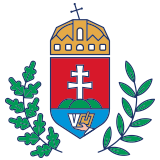The First Joint Scientific Conference of Hungarian Physiological, Biophysical, Microcirculation, and Bioinformatics Societies
2025. szeptember 18
This year, for the first time, the joint scientific conference of the Hungarian Physiological Society (MÉT), the Hungarian Biophysical Society (MBFT), the Hungarian Microcirculation and Vascular Biology Society (MMVBT), and the Hungarian Bioinformatics Society (MABIT) was organized in Szeged from September 2 to 5, held entirely in English. The purpose of this joint event was not only to provide an opportunity for domestic and international researchers to share their latest findings and expand their professional networks within the relevant scientific fields but also to enable these research communities to discover new synergies and, working together, to strengthen and intensify basic research in Hungary.
 The event’s special scientific significance was further enhanced by presentations from distinguished guests alongside national experts. Among these was Botond Roska, Wolf Prize-winning researcher (Institute of Molecular and Clinical Ophthalmology Basel, Switzerland), who discussed restoring color vision in blind retinas, the creation of intelligent optogenetic glasses, and the mechanisms of ganglion cell degeneration. Following him, Norbert Pardi (University of Pennsylvania, USA), a collaborator of Katalin Karikó, presented on the role of lipid nanoparticles in delivering mRNA vaccines. On Thursday, attendees were privileged to listen to Stefan Hell, Nobel Prize-winning researcher (Max Planck Institute, Germany), who introduced the audience to the details of super-resolution fluorescence microscopy techniques. These presentations offered an extraordinary opportunity for us to learn from and be inspired by leading scientists at the forefront of their fields.
The event’s special scientific significance was further enhanced by presentations from distinguished guests alongside national experts. Among these was Botond Roska, Wolf Prize-winning researcher (Institute of Molecular and Clinical Ophthalmology Basel, Switzerland), who discussed restoring color vision in blind retinas, the creation of intelligent optogenetic glasses, and the mechanisms of ganglion cell degeneration. Following him, Norbert Pardi (University of Pennsylvania, USA), a collaborator of Katalin Karikó, presented on the role of lipid nanoparticles in delivering mRNA vaccines. On Thursday, attendees were privileged to listen to Stefan Hell, Nobel Prize-winning researcher (Max Planck Institute, Germany), who introduced the audience to the details of super-resolution fluorescence microscopy techniques. These presentations offered an extraordinary opportunity for us to learn from and be inspired by leading scientists at the forefront of their fields.
Among the staff of the Biophysics Institute, 20 colleagues presented posters, and nine summarized their results in scientific lectures (Dominik Sziklai, Miklós Kellermayer, Tamás Hegedűs, Erika Balog, Károly Liliom, Bálint Kiss, György Ferenczy, Bence Fehér, and Konstantinos Voniatis). It is important to highlight that our institute’s young students, Dominik Sziklai (PhD student) and Péter Puskás (undergraduate researcher), were recipients of youth awards.
At the closing ceremony of the conference, the Ernst Jenő career awards of the Hungarian Biophysical Society were also presented. The awardees were: gold level—Balázs Kretzer and István Rebenku; silver level—Bálint Dudás and Gyula Hoffka; and bronze level—Ágnes Ábrahám and Vivien Jusztus.
Overall, the conference provided a highly substantive and high-quality professional experience that contributed to the scientific development of all participants.

